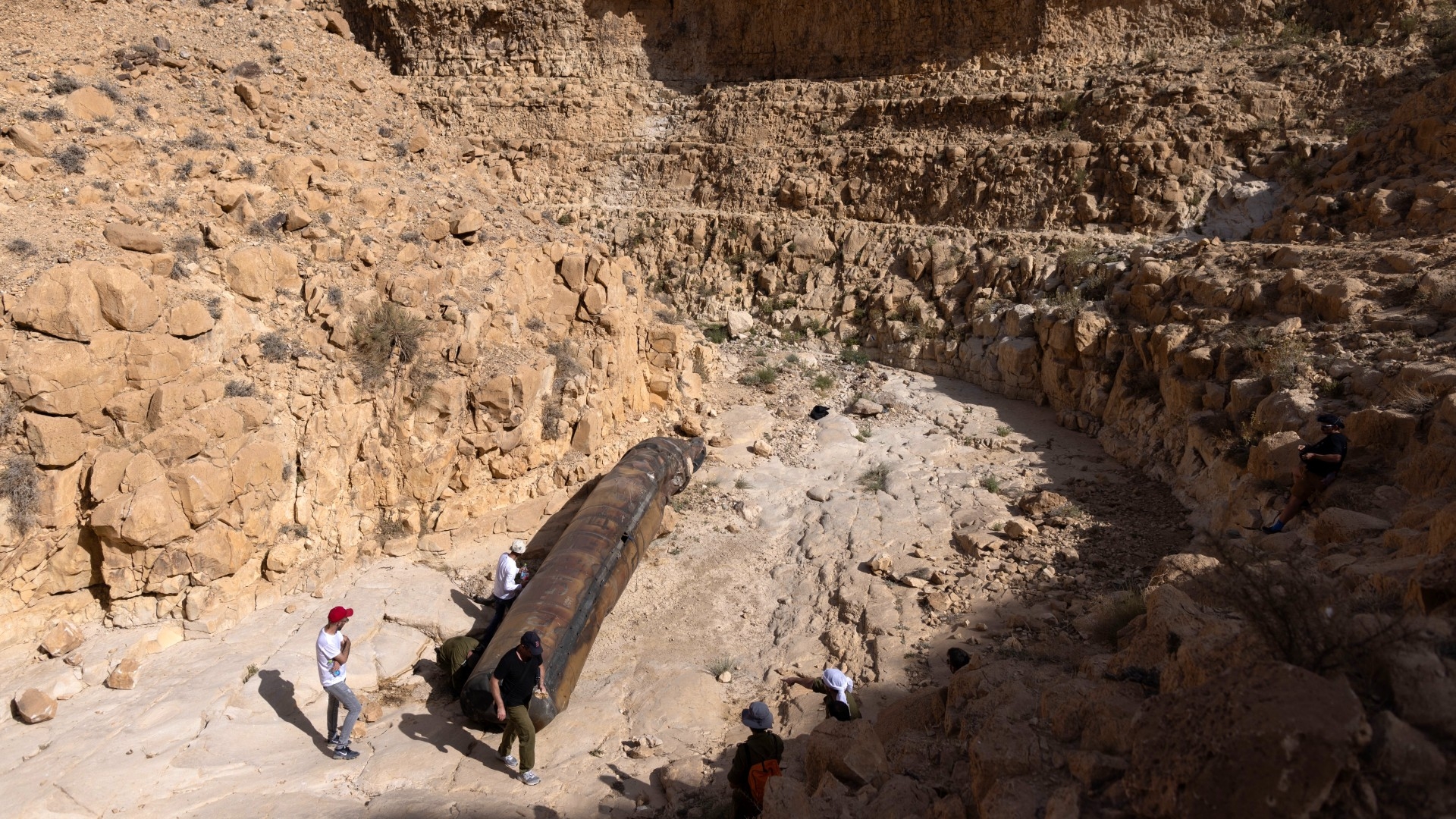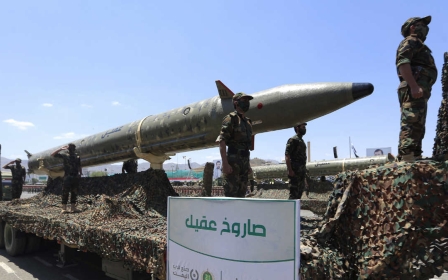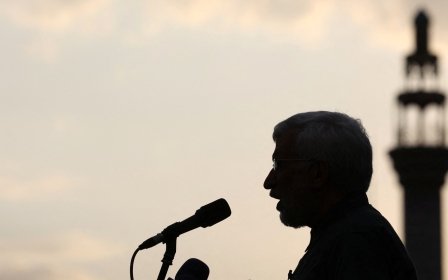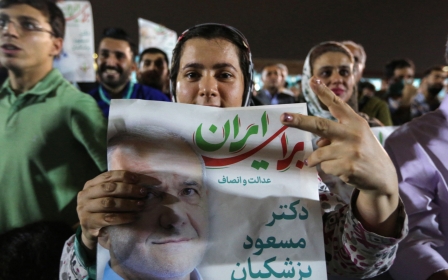Benny Morris: Israeli historian calls for nuclear strike on Iran

Israeli historian Benny Morris has called on Israel to launch a military attack on Iran, either through "conventional weaponry" or by using nuclear weapons.
In a column for Haaretz over the weekend, Morris said Israel's response to Iranian missile attacks on 13 April was "weak", and was part of Prime Minister Benjamin Netanyahu's "extreme hesitation and restraint" in the face of Iranian threats for the past 15 years.
Iran launched more than 300 drones and missiles in April, in its first direct attack targeting Israeli territory.
No one died in the attack, which came in reponse to a suspected Israeli strike on the Iranian consulate in Damascus, which killed 16 people, including high-ranking members of the Islamic Revolutionary Guard Corps (IRGC).
Morris said Israel had arrived at a "moment of truth", stating that Iran was on the cusp of having 90 percent uranium enrichment which could be upgraded to produce a stockpile of nuclear bombs.
New MEE newsletter: Jerusalem Dispatch
Sign up to get the latest insights and analysis on Israel-Palestine, alongside Turkey Unpacked and other MEE newsletters
"The attacks against Israel over the past eight months by Iran, its emissaries and its allies... provide sufficient reason to attempt to destroy Iran's strategic capabilities, which include ballistic capabilities," he wrote.
"There's no better moment to deliver a strategic blow against Iran, given the current asymmetry in capabilities between the two countries," he added, stating that Israel had far superior weaponry than Tehran, but that such advantages would be lost in the coming years.
"Once the ayatollahs have nuclear weapons, and the means to deliver them, they may well use them against Israel - and leave it to Allah to protect them against Israel's second-strike capabilities," he wrote.
He said that Israel had one key advantage over Iran: its current reported possession of nuclear weapons, while Iran only aspired to it.
"If Israel proves incapable of destroying the Iranian nuclear project using conventional weaponry, then it may not have any option but to resort to its nonconventional capabilities," Morris wrote, referring to nuclear weapons.
He said that while the international media, some world leaders and "ignorant and mindless youngsters on the campuses" would condemn Israel, there would be "significant understanding" among other international onlookers.
Morris's comments came as Yair Katz, head of the Israeli workers' union in the aerospace industry, stated that Israel had weapons that could "break the equation" against Iranian threats, in an apparent reference to nuclear weapons.
"If Iran, Yemen, Syria, Iraq and all the countries of the Middle East decide that it is time to settle accounts with us, I understand that we have the capabilities to use the doomsday weapon," Katz said, according to a report in Israel Hayom.
'Israel's moral deterioration'
The column by Morris was criticised by several Israeli commentators.
In a column for Haaretz, Yossi Melman, a commentator on Israeli security and intelligence, said that Morris was "overwhelmed by an idea that none of the current and former mainstream members of the security establishment is proposing", aside from far-right politicians such as Heritage Minister Amichai Eliyahu.
In November, Eliyahu suggested that dropping a nuclear bomb on Gaza was "an option" - a comment that was dismissed by Netanyahu and led to the heritage minister being suspended from government meetings.
Melman said in his column that Morris had become an "Israeli Dr Strangelove" who "stopped caring and learned to love the bomb", referencing the 1964 film by Stanley Kubrick.
Adam Raz, an Israeli historian, said Morris's proposal reflected the "all-destroying revenge strategy" that has dominated the Israeli mindest in recent months.
"Extermination has become legitimate in Israeli discourse, and is evidence of Israel's moral deterioration," he wrote on Haaretz.
Morris was formerly among a group of Israeli historians known as the "New Historians", alongside the likes of Ilan Pappe, Avi Shlaim and Tom Segev, who challenged prevailing Israeli narratives on history, including the forced displacement of Palestinians in 1948.
In more recent years, however, Morris has taken extreme positions which have been criticised by his New Historian colleagues.
He said that there were "circumstances in history that justify ethnic cleansing", and stated that if Israel had "cleansed the whole" of the Palestinian population in 1948, it would have "stabilised the state of Israel for generations".
He has also been accused of making discriminatory remarks about Palestinians, including by comparing them to wild animals.
When called out on this in March during a lecture at the London School of Economics, he replied: "I'd rather be a racist than a bore."
Middle East Eye delivers independent and unrivalled coverage and analysis of the Middle East, North Africa and beyond. To learn more about republishing this content and the associated fees, please fill out this form. More about MEE can be found here.





